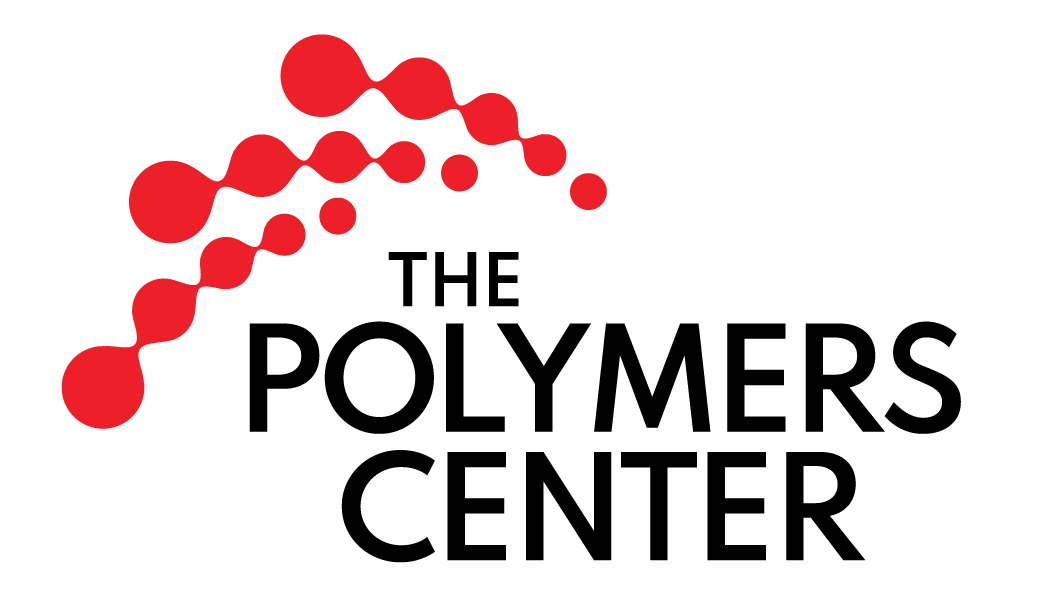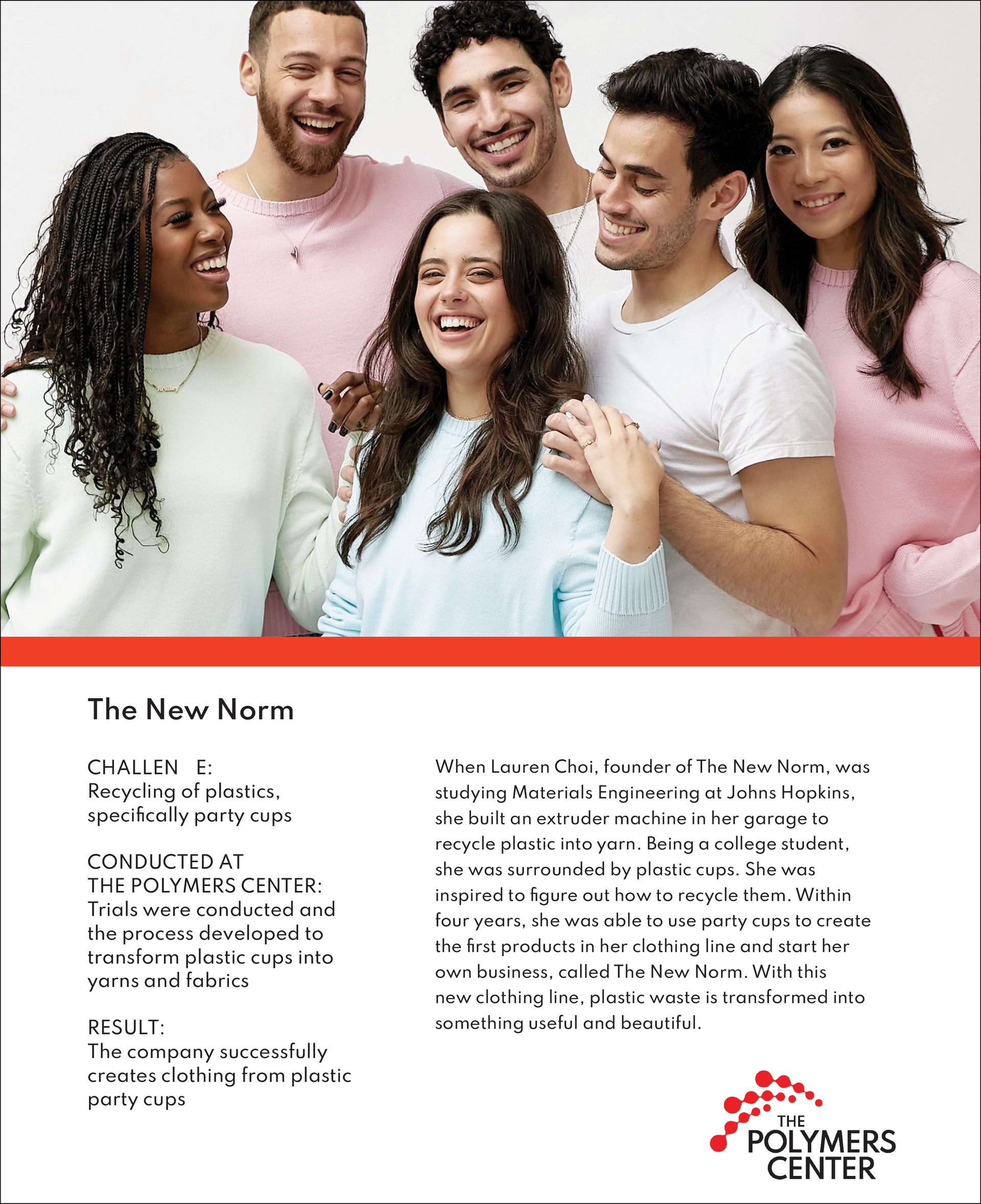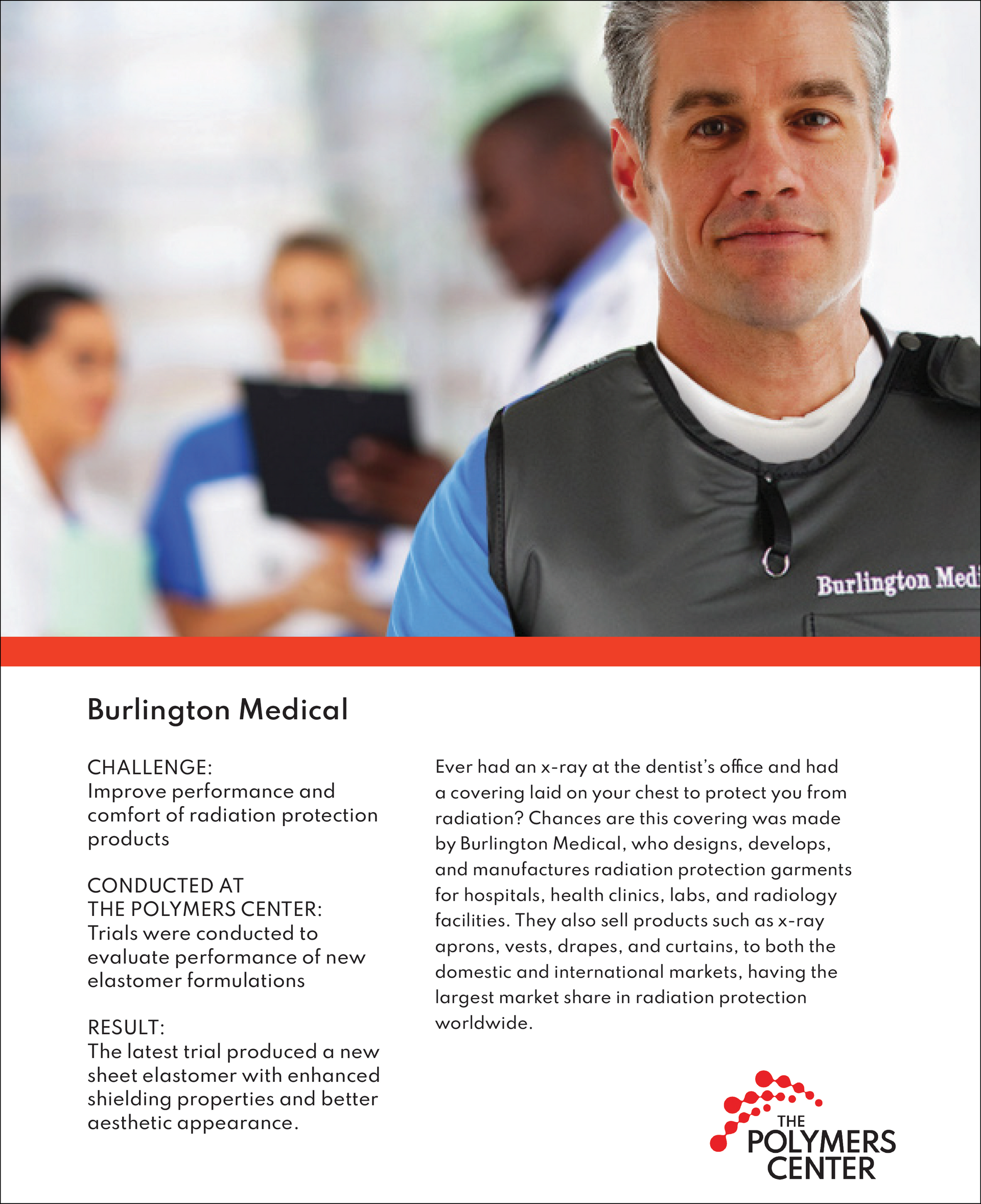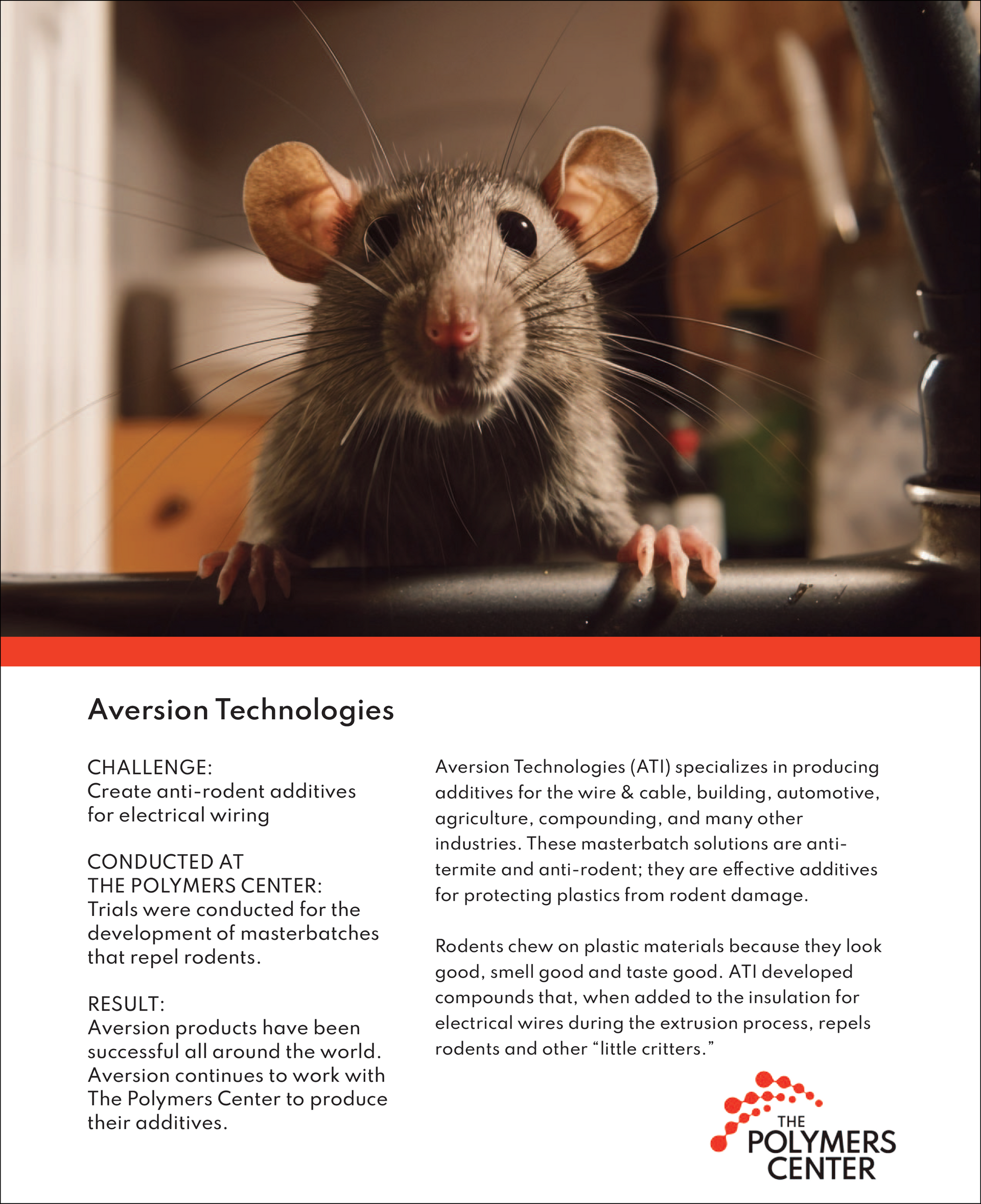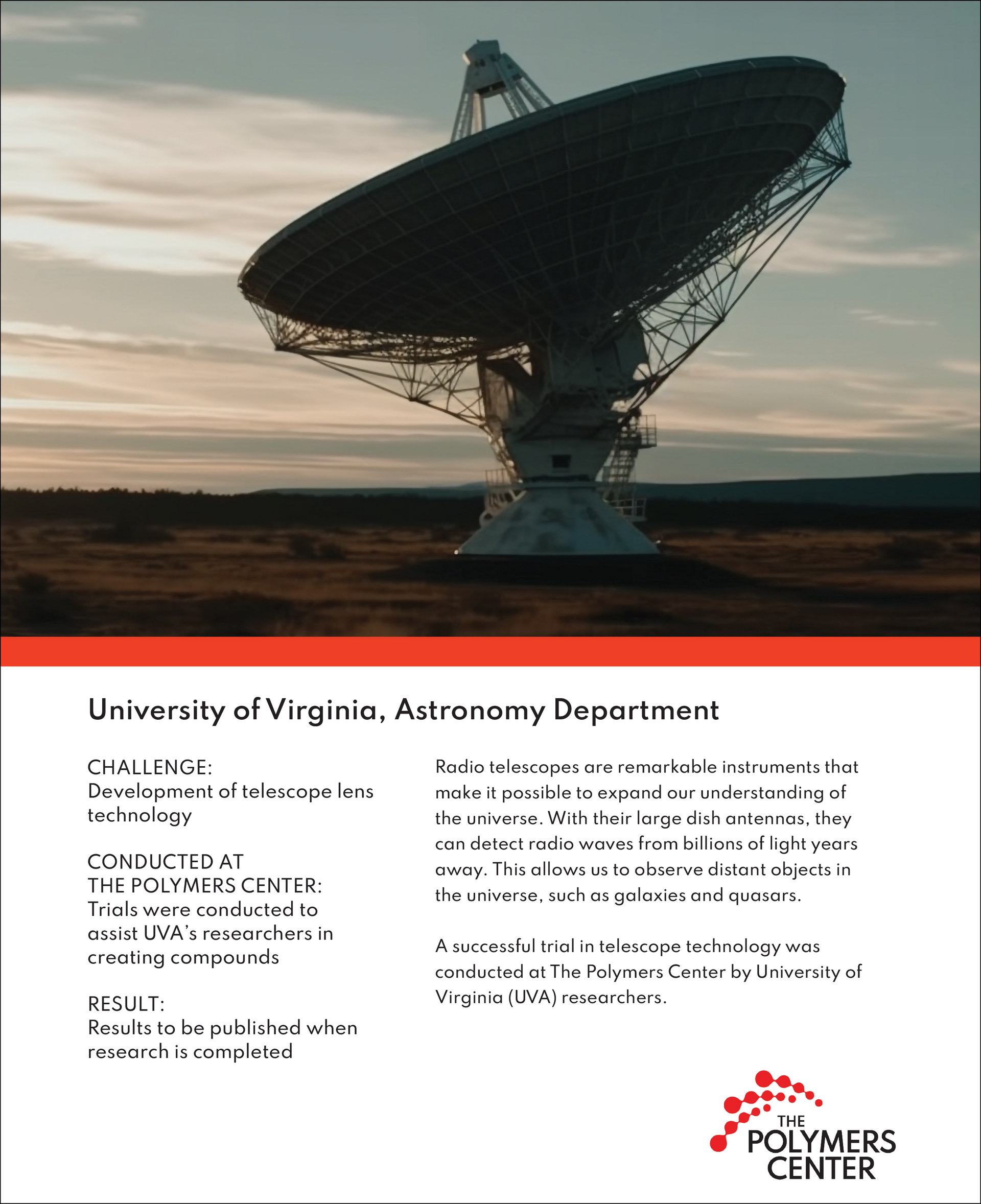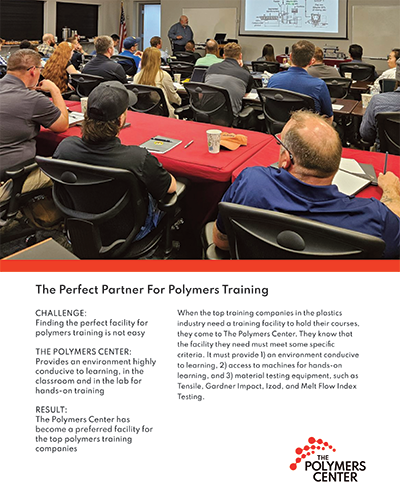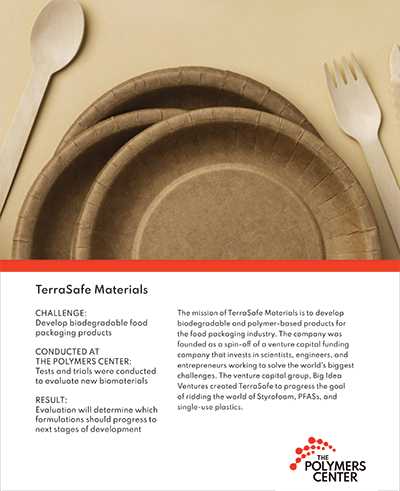Success Stories
Burlington Medical
Challenge:
Improve performance and
radiation protection products
Conducted at The Polymers Center:
Trials were conducted to evaluate performance of new elastomer formulations
Result:
The latest trial produced a new sheet elastomer with enhanced shielding properties and better aesthetic appearance.
Aversion Technologies
Challenge:
Create anti-rodent additives
for electrical wiring
Conducted at The Polymers Center:
Trials were conducted for the development of masterbatches that repel rodents.
Result:
Aversion products are sold all around the world. Aversion continues to work with The Polymers Center.
The Perfect Partner For Polymers Training
Challenge:
Finding the perfect facility for polymers training is not easy
Conducted at The Polymers Center:
Provides an environment highly conducive to learning, in the classroom and in the lab
Result:
The Polymers Center has
become a preferred facility for the top polymers training companies
